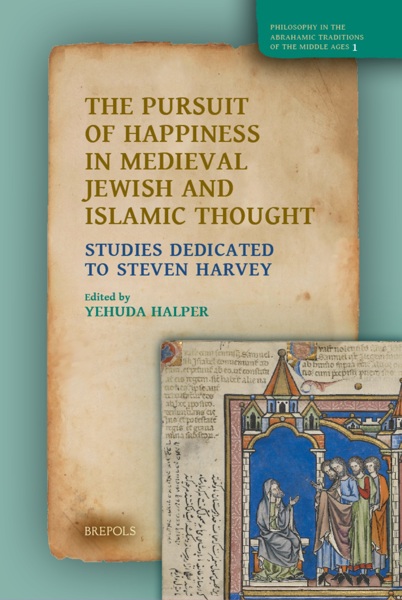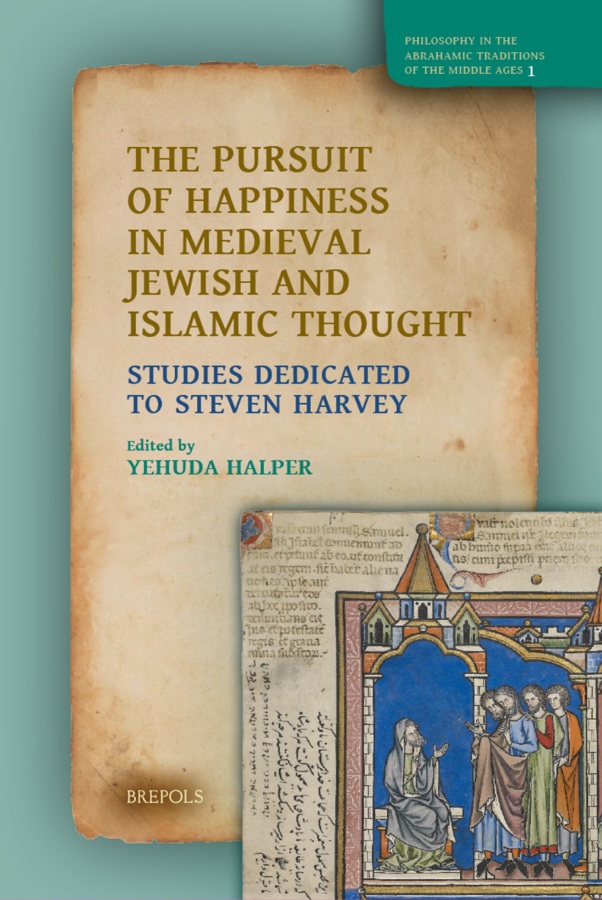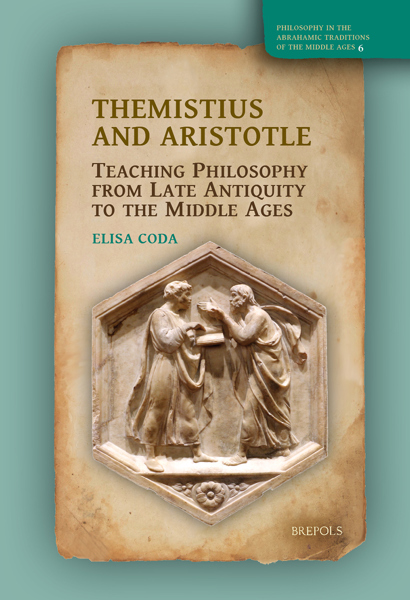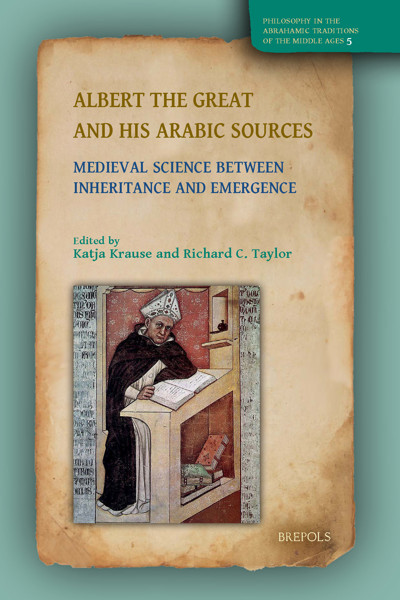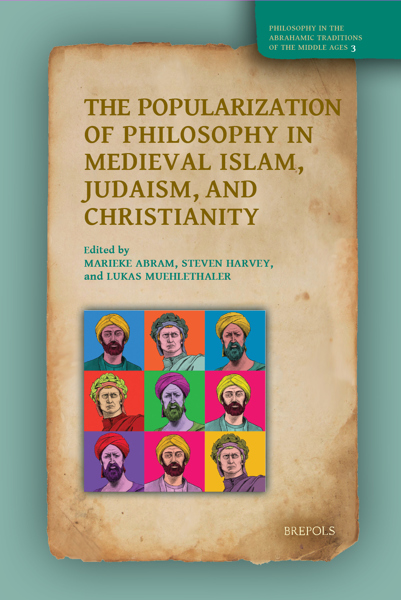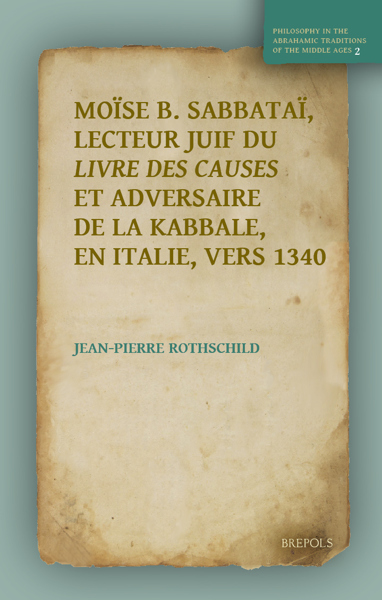
The Pursuit of Happiness in Medieval Jewish and Islamic Thought
Studies Dedicated to Steven Harvey
Yehuda Halper (ed)
- Pages: 432 p.
- Size:156 x 234 mm
- Language(s):English, French
- Publication Year:2021
- € 110,00 EXCL. VAT RETAIL PRICE
- ISBN: 978-2-503-59143-8
- Hardback
- Available
- € 110,00 EXCL. VAT RETAIL PRICE
- ISBN: 978-2-503-59144-5
- E-book
- Available
Explore the teachings on happiness by a range of thinkers from antiquity through Spinoza.
“This volume is a fitting tribute to Professor Steven Harvey, who is a leading scholar and foremost authority in the field of medieval Jewish and Islamic philosophy. The contributors are all colleagues, students, and friends of Harvey, and their essays build on his scholarship, much of which concerns the theme of happiness, topics related to it, and the thinkers, texts, and terms studied in the volume. As scholars working in the field know well, Harvey’s own contributions to the study of medieval philosophy are immense. His field-defining contributions are listed at the end of the volume, in a bibliography of his writings, which will serve as an important resource and research tool for current and future scholars in the field.” (Yonatan Shemesh, in The Medieval Review, 22.12.09)
"Y. Halper has edited a remarkable volume and is an ideal example of what this new series pursues." (Luis Xavier López-Farjeat, dans Revue des sciences religieuses, 99/1-2, 2025, p. 265)
Yehuda Halper is Associate Professor in the Department of Jewish Philosophy at Bar-Ilan University. He is Director of the Israel Science Foundation research project, ‘Hebrew Traditions of Aristotelian Dialectics’.
The articles in this volume explore the teachings on happiness by a range of thinkers from antiquity through Spinoza, most of whom held human happiness to comprise intellectual knowledge of that which is Good in itself, namely God. These thinkers were from Greek pagan, Muslim, Jewish, and Christian backgrounds and wrote their works in Greek, Arabic, Hebrew, and Latin. Still, they shared similar philosophical views of what constitutes the Highest Good, and of the intellectual activities to be undertaken in pursuit of that Good. Yet, they differed, often greatly, in the role they assigned to deeds and practical activities in the pursuit of this happiness. These differences were, at times, not only along religious lines, but also along political and ethical lines. Other differences treated the relationship between the body and intellectual happiness and the various ways in which bodily health and well-being can contribute to intellectual health and true happiness.
Introduction — Yehuda Halper and Resianne Fontaine
Happiness Without Sense-Perception: From Plotinus to the visio beatifica, East and West — Cristina D’Ancona
Happiness in Jewish-Hellenistic and Rabbinic Thought — Giuseppe Veltri
Philosophical Terms for ‘Happiness’ in Languages of Culture in Medieval Near, Middle, and Far East — Mauro Zonta
Alfarabi on Categories of Existence and Politics — Charles E. Butterworth
Alfarabi’s Directing Attention to the Way of Happiness or the Way out of the Cave — Thérèse-Anne Druart
Light, Exhilarants, and Healing the Spirit: Some Observations on Avicenna’s al-Adwiya al-Qalbiyya (Cardiac Drugs) — Y. Tzvi Langermann
On the Certainty of Traditio — Hannah Kasher and Ariel Malachi
From Tranquility to Extra Effort: Some Notes on the Introduction and Conclusion of Maimonides’ Guide of the Perplexed — Dong Xiuyuan
Maimonides on Joseph Ibn Jābir’s Ultimate Happiness — Charles Manekin
‘Shun Evil and Do Good’: The Problem of Evil According to Maimonides’ Commentators on Guide, III. 8–12 — Resianne Fontaine
Happiness, Eros, and the Active Intellect: Understanding Erotic Desire in Averroes’ Long Commentary on Aristotle’s Metaphysics Λ in light of the Middle Commentary on the Nicomachean Ethics — Yehuda Halper
‘…donc le bonheur ne réside pas dans le jeu’: Quelques brèves remarques sur le Commentaire moyen d’Averroès à l’Éthique à Nicomaque, X 6 — Frédérique Woerther
Ibn al-ʿArabī’s Theology of Prayer — Binyamin Abrahamov
Meaning Beyond Defining: Averroes’s Dispositio in Thomas Aquinas’s Account of Heavenly Beatitude — Katja Krause
How to ‘Win the Fulfillment of the Best Life Set by the Gods’: Questions Addressed to Plato by Gersonides — Ruth Glasner
Courage and Death: Aristotle, Aquinas and Joseph b. Shem-Ṭob — Chaim M. Neria
Hasdai Crescas’s Use of the Term ‘Happiness’ — Warren Zev Harvey
Happiness in Life and after Death in Late Medieval Byzantine Jewish Thought — Dov Schwartz
Spinoza and Some of His Medieval Philosophers on the Summum Bonum — Yitzhak Melamed
The Pure Young Men: Chastity, Euripides, and the Madrasas of Pakistan — John Walbridge
***
Bibliography of the Writings of Steven Harvey
Index of Names
Index of Passages Cited
